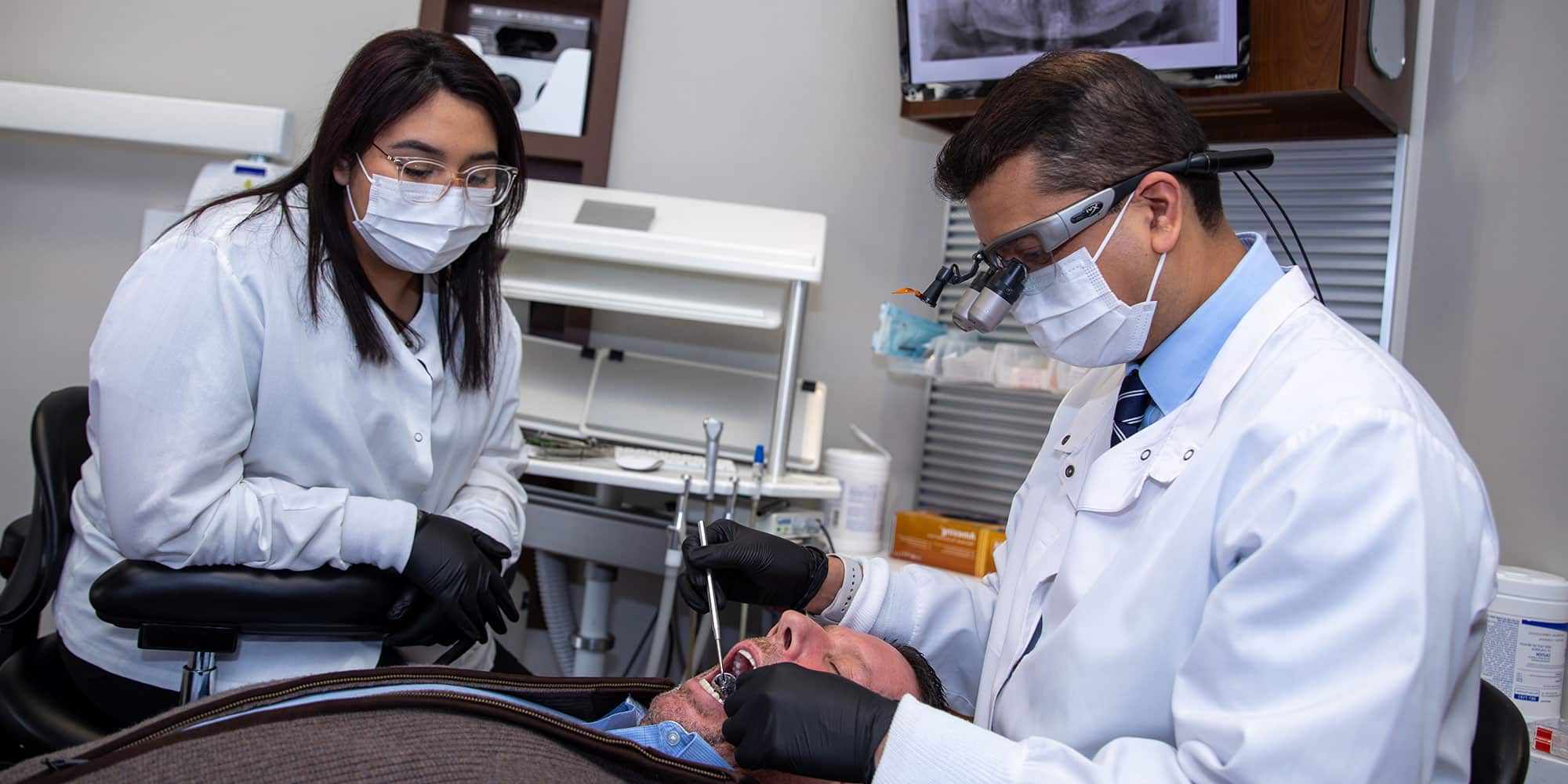
Considerate and Expert Surgical Care
If you’re suffering from dental conditions that require surgery, such as severe tooth decay or infection, impacted third molars, or missing teeth, you’ve come to the right practice. Our team has expertise providing a full spectrum of comfortable and effective oral surgery in Woodbury, MN in a relaxing, spa-like setting. Dr. Avi Matha has extensive experience treating all these issues and others to restore your dental health, function, and smile aesthetics. At Tamarack Family Hills Dentistry, you can choose from three different sedation options, so no need to delay or worry about getting treatment. Dental problems often worsen when left untreated, therefore we encourage you to schedule an oral surgery consultation as soon as possible to avoid more complex and costlier procedures later.
dISCOVER THE BEST WISDOM TEETH REMOVAL OPTIONS FOR YOU
Fill out this short Smile Assessment to discover which wisdom tooth removal option is best for you and get a custom consultation!

THE ASSESSEMENT WILL SHOW
- Eligibility Factors
- Treatment Timeline
- And More…
Select Oral Surgery Procedures
Tooth Extractions
If a tooth is severely decayed or damaged, sometimes the only option to preserve your oral health is extraction. After Dr. Matha pulls your tooth, he can usually replace it with a dental implant, dental bridge, or a partial denture.
Wisdom Tooth Extractions
Also called third molars, wisdom teeth usually appear between the ages of 17 and 25. In most cases, inadequate space in the mouth doesn’t allow wisdom teeth to erupt properly and become fully functional. Wisdom tooth extraction helps ensure that the rest of your teeth stay healthy and your mouth remains infection-free.
Bone Grafting
Gum disease, missing teeth, injuries, and infections can cause loss of bone in your jaw.
When there is bone recession/loss, bone grafting is recommended to provide a strong foundation for dental implants. Bone grafting is also used to limit or prevent bone recession following a tooth extraction or periodontal disease.
Augmentation
This common dental procedure is often performed following a tooth extraction to help recreate the natural contour of the gums and jaw after tooth extraction results in bone loss. If you’re getting dental implants, Dr. Matha will restore natural boney contours and density with ridge augmentation or fill an empty tooth socket to slow the resorption process.
Sinus Lift
Maxillary sinuses reside behind the cheeks and on top of your upper teeth. Frequently, when upper teeth are extracted or missing, all that remains is a thin wall of bone separating the maxillary sinus and the mouth. A sinus lift strengthens and builds bone in this location so dental implants can be placed and secured in the new bone growth.When there is bone recession/loss, bone grafting is recommended to provide a strong foundation for dental implants. Bone grafting is also used to limit or prevent bone recession following a tooth extraction or periodontal disease.
Guided Tissue Regeneration
Tissue regeneration is done to encourage jawbone tissue to grow so it can provide a stable and strong foundation for dental implants. After gum pockets are thoroughly cleaned and sanitized, Dr. Matha places a bioabsorbable membrane between your gum tissue and bone where it grows into the desired shape and is slowly reabsorbed.
FAQs
Oral surgery procedures vary in complexity and may involve local or general anesthesia to minimize discomfort. While some patients may experience mild discomfort or soreness following surgery, advancements in anesthesia and pain management techniques have significantly reduced pain during and after procedures. With proper care and medication prescribed by your oral surgeon, any discomfort can be effectively managed, ensuring a smoother recovery process and minimal pain.
After oral surgery, it’s crucial to follow your dentist’s guidelines regarding eating. Initially, stick to soft foods like yogurt, mashed potatoes, and soup to avoid irritating the surgical site. Avoid hot or spicy foods, as they can cause discomfort. As you heal, gradually reintroduce solid foods, starting with small, easy-to-chew bites. Remember to chew on the opposite side of the surgical area and avoid foods that may get lodged in the healing site to promote proper healing.
The recovery time for oral surgery varies depending on the type and complexity of the procedure. Minor procedures like tooth extractions may require only a few days for recovery, while more complex surgeries such as wisdom tooth removal or jaw reconstruction may take several weeks. Factors like overall health, adherence to post-operative instructions, and the body’s healing response also influence recovery time. It’s essential to follow your dentist or oral surgeon’s guidance closely to ensure a smooth and speedy recovery.
The most common oral surgery is wisdom teeth removal. Wisdom teeth, also known as third molars, often cause issues like impaction, crowding, or infection due to lack of space in the mouth. Oral surgeons perform this routine procedure to alleviate discomfort and prevent potential complications. With advancements in anesthesia and surgical techniques, wisdom teeth removal is generally safe and effective, helping patients maintain optimal oral health.
After oral surgery, it’s generally safe to brush your teeth, but it’s crucial to do so gently and carefully. Use a soft-bristled toothbrush and avoid vigorous brushing around the surgical site to prevent irritation or dislodging of stitches. Rinse your mouth with a saline solution or prescribed mouthwash as recommended by your dentist. Following these guidelines will help maintain oral hygiene without compromising the healing process.
